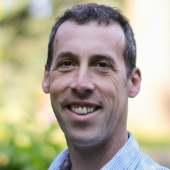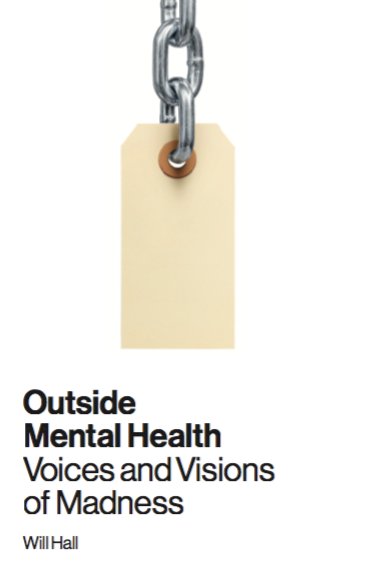Journey Through Mania | Oryx Cohen | Madness Radio
First Aired: 08-29-2015 -- 8 comments | Add comment

Psychiatric survivor leader Oryx Cohen was at a national conference when a seizure suddenly launched him out of his body and into a visionary state of madness. Avoiding medications or hospitalization, friends held a hotel room vigil for Oryx for many sleepless nights, and then drove him 4 days across country to safety.
What surprising lessons – about the usefulness of medications, support, spirituality, and his own trauma – did Oryx learn? How can the fear of manic psychosis turn into healing?
Podcast: Play in new window | Download (Duration: 55:37 — 51.0MB)
Subscribe: RSS



























 Creative Commons 2.5 copyright
Creative Commons 2.5 copyright
First of all, I want to thank Oryx Cohen for sharing his story. This is courageous and so helpful. I have sometimes felt that the polarization that occurs when we try to talk about reforms or alternatives is in part due to the experience that so many problems are blamed on those of us who work within the traditional system. It goes beyond a statement that the system could be reformed to the notion that the system is the source of the problems – drugs cause the problems, the system traumatized the individual (and I am not saying this is what Will and Oryx think but it is a sentiment that one hears). While there may be truth in these statements, they do not explain all extreme states. But what those statements do accomplish is to make it much harder for those of us in the system who want reform to ally with those who blame us. What Oryx’ story tells me is that even with an extremely supportive network, people were not able to see him through. And this may come down to practical problems – not enough people available for enough time. This is in many ways not so different form what the “system” faces. When we (those of us in “the system”) have someone go into a hospital, it is usually because we do not have the resources to assure ourselves the person is safe (and I agree this is our fear). I have this idea that if we could collectively acknowledgment these limits – of time and resources and just personal tolerance – may be we could have more productive and collaborative discussions of how to proceed.
Thanks for your comment Sandy! I believe we need to create time and resources for supports that work. Having personal experience receiving “help” in both the clinical and alternative support worlds, I can tell you that the approaches are very different. I don’t think it’s as simple as both places suffer from lack of time. If there were more alternatives available, that’s where I would have gone immediately. The fact is that the vast majority of funds go in to the clinical, medical world that is failing most people. Yes there are good people in the clinical world but that doesn’t mean that the system isn’t still broken. We need more alternatives: More Soteria houses, more peer respites, more Open Dialogue!!! And we need to fundamentally change how we as a society view these experiences. Those are my thoughts. Thank you Sandy for working from the inside because we need that too.
I agree. Maybe I missed it in the interview but at some point, it would be great to be able to hear you address the differences. I think I have a sense of this – something I have learned from people lie you and others who have been able to speak out. And it is also something I have learned from my studies of Open Dialogue and interactions with practitioners in that sphere. This is an important conversation and what I am wondering about is how we get people to listen with truly open ears.
allow me to share my inspiration such as http://obatnyerisendilutut.com or http://obatspermakosong.com is a website who care about health and psicologyst
I liked when Will asked if he wanted to be alone at anytime. I had a crisis in 2015 and I decided I needed to ask my family to go to a relatives so I could be alone. In any case after they went to a safe place with my relative things got worse and I ended up getting treatment. If it happen again though I would definitely ask my family to go to my relatives again. I was definitely in a strange/scary place and I didn’t want my family near me. I haven’t located a special friend who could help me through that place. The doctor and professionals can’t but they are there to help.
Pat H.
Oh my goodness, what an honor to listen to this. Thank you, Oryx, for your willingness to share your experience and thank you, Will, for your supportive and compassionate questions. It helped me immensely to get this inside look at an altered state. My son has been traveling through one for the past few years. Luckily, we are in Open Dialogue and have the care of gentle and insightful counselors. Still, it has been a slow go and often very painful. When Oryx spoke of “separation” as a driving force into altered states, it rang true. When my son asked me what I thought hell was, I told him I thought hell was the fear that one has become separated from love. Finding one’s way back to love is our ultimate journey.
Just a huge thank you guys for this excellent and insightful sharing! Is it ok to share on my own website? http://www.visionsandvoices.weebly.com
I have the site for 2 years and have had 8000 visitors and feel it would be so helpful to share this.
Many thanks, Ivan
I’ve been listening to Madness Radio podcast for about 6 months and I decided I wanted to write and thank Will for this.
Your podcast is incredibly important – it gives a voice to one of the least talked about things today, interviews some of the most disempowered people. Usually, when mental health gets talked about it’s from that institutional lens, yet you’re giving survivors and alt therapists a chance to talk about their direct experience. Very powerful.
Even better is that many times, you’re able to allow or re-frame dialogue about altered states to take into account how this may be viewed by different cultures, or different periods of our human history. One of the weirdest things about living today is our narrative of zero-day history as it relates to many systems (legal, economic, gov, work). We act as if these systems are immutable and primal, rather than their absolute newness in terms of human history. To break that narrative by considering how culture and history can affect how we see the world is essential.
There are many ways to deal with the personal and societal mindstate, and your podcast is a huge step in opening up that dialogue.
So thank you from the whole of my survivor heart, best of luck in the future with all that you’re a part of!